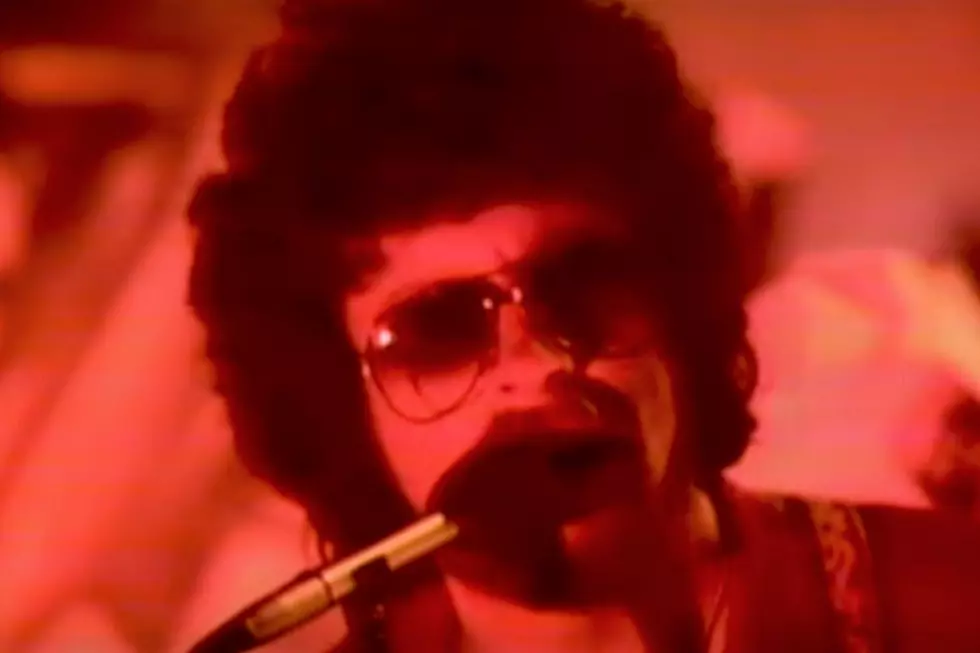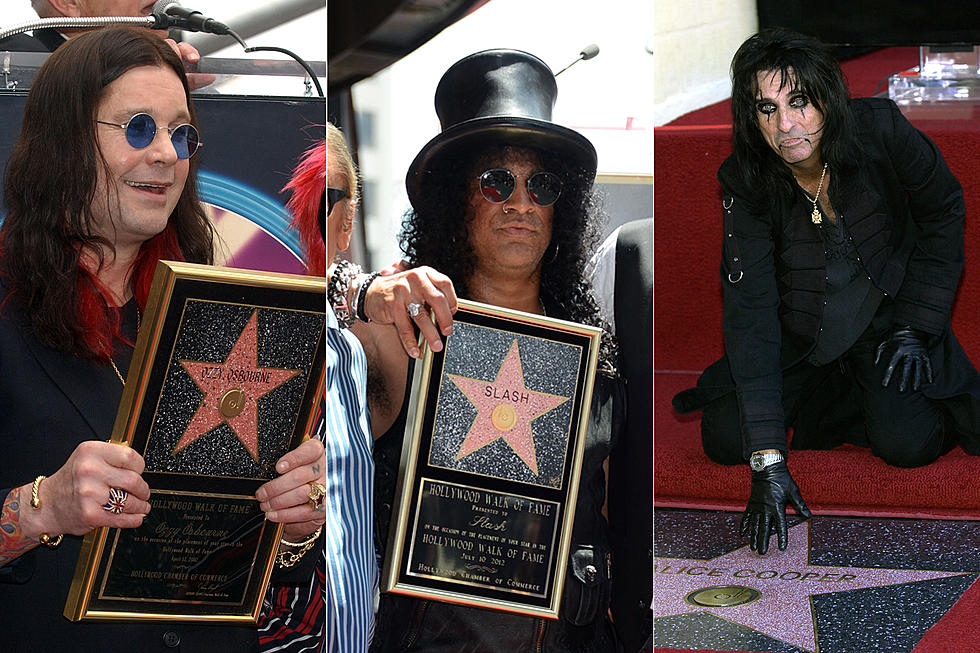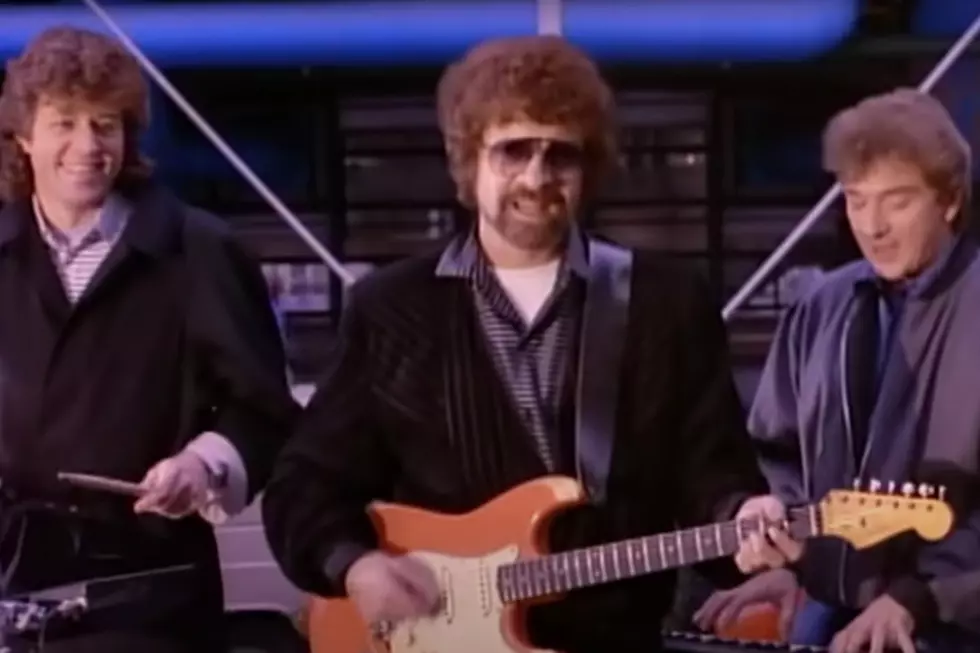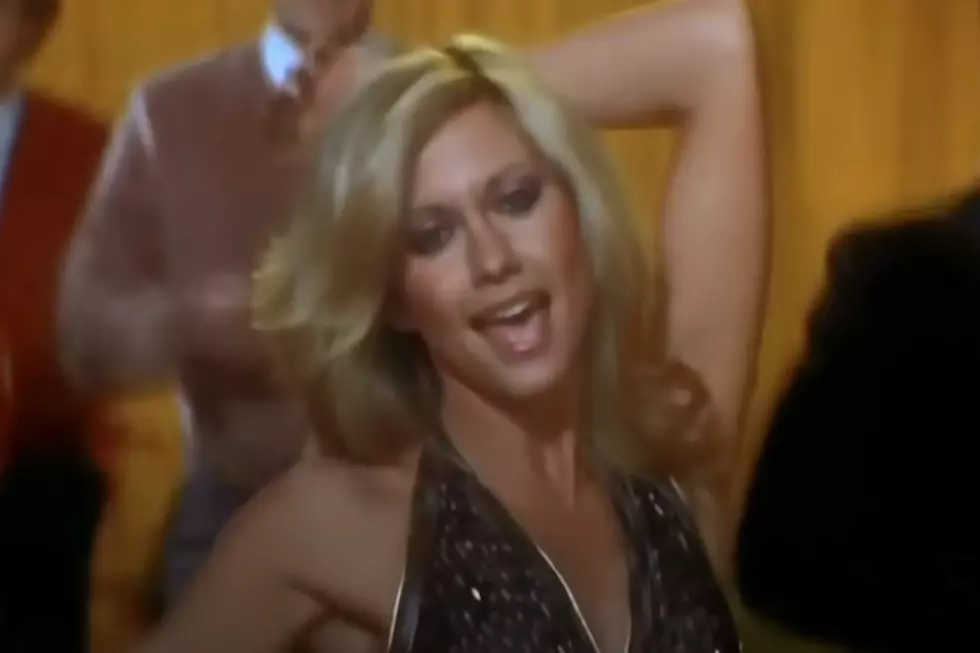
Why Did Jeff Lynne Add ‘Bruce’ to Electric Light Orchestra’s ‘Don’t Bring Me Down’?
You've probably listened to the Electric Light Orchestra's Top 5 1979 hit "Don't Bring Me Down" and thought: So, who's Bruce? After all, singer-songwriter Jeff Lynne calls out his name right after the song's title line.
But there was no Bruce. Lynne used a made-up place-keeper word when the song was still unfinished, only learning later that it perhaps had an actual translation in another language.
"When I was singing it, there was gap in the vocals, so I just shouted out 'groose,'" Jeff Lynne told Rolling Stone in 2016. "It was a word that came to my head."
And thus was born another mondegreen — the word given to misheard lyrics that perhaps make sense but are, in fact, completely wrong. ("Mondegreen," by the way, is itself a mondegreen: The American writer Sylvia Wright misheard a line of 18th-century poetry as "Lady Mondegreen," when it was actually "laid him on the green.") The term was created in the '50s, and then popularized more recently by San Francisco Chronicle columnist Jon Carroll.
Released on 1979's Discovery, "Don't Bring Me Down" made its own kind of history as the first Electric Light Orchestra song without any strings. Lynne did more than ad lib this one line; in fact, he improvised the whole thing.
"I made up ['Don't Bring Me Down'] in the studio, and I play all the instruments," Lynne told Rolling Stone. It starts with a drum loop from another song" -- "On the Run," also from Discovery -- "that I sped up. I then compressed the shit out of it."
As usual, Lynne didn't present the lyrics until the end. Everything else — even some background singing — was typically recorded before the lead vocal, which was the last thing added.
So, why keep a lyric that was never meant to stay? "The engineer was German and he said, 'How did you know that word?'" Lynne recalled during a 2001 episode of VH1's Storytellers. "And I said: 'What word?' And he said, 'Gruss. It means "greetings" in German.' I said, 'That's good. I'll leave it in.'"
Watch ELO's 'Don't Bring Me Down' Video
Only ELO engineer Reinhold Mack remembers it quite differently.
"As there was a plan for ELO to start a concert tour in Australia, the song was originally titled 'Don't Bring Me Down, Bruce,' Mack told Sound on Sound in 2013. "This was meant to be a joke, referring to how many Australian guys are called Bruce."
Mack says a new word was actually added later. "We couldn't leave it like that, so eventually we replaced it with 'gruss,' based on the Bavarian greeting Grüß Gott — 'greet God.' Gruss, not Bruce, is what you hear in the song immediately following the title line. A bit like Freddie Mercury joking around at the end of Queen's [1985 single] 'One Vision,' singing 'fried chicken.'"
After getting a complete take, Lynne typically set about adding a punishing series of overdubs, but this song was different. "It was pretty much done in a day," Mack noted. "That's because it's a very simple, straightforward track — especially compared to the complexity that Jeff usually went for, and clearly people liked it."
"Don't Bring Me Down" became the biggest hit ELO ever had on their own in the U.S., topped only by a collaborative single with Olivia Newton-John on "Xanadu," from the 1980 movie of the same name.
By the time ELO got out on the road in support of Discovery, a new phenomenon was sweeping through the audience — and not just in Australia. "When I went onstage with it," Lynne told Rolling Stone, "everyone would sing 'Bruce.'" At first, Lynne stuck to his guns, singing his once-thought-invented, now-maybe-German word instead.
Eventually, however, he caved. "I said 'Ah, fuck it,'" Lynne told VH1, "I'll sing 'Bruce' as well!"
See ELO Among Rock’s Most Underrated Albums
More From Sasquatch 92.1 FM










